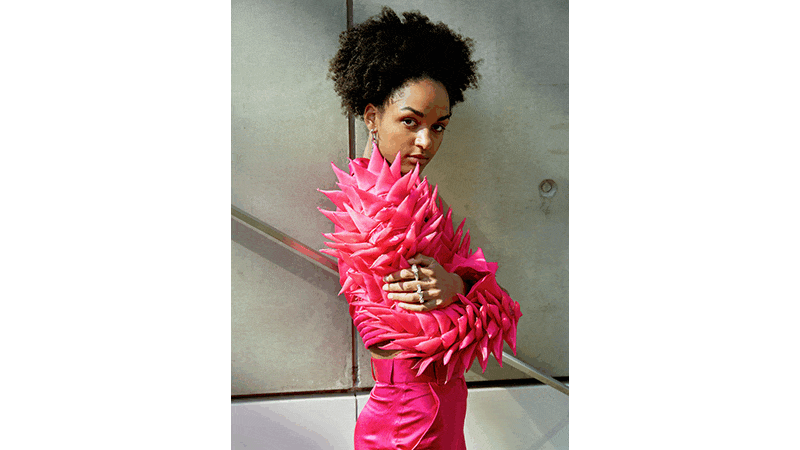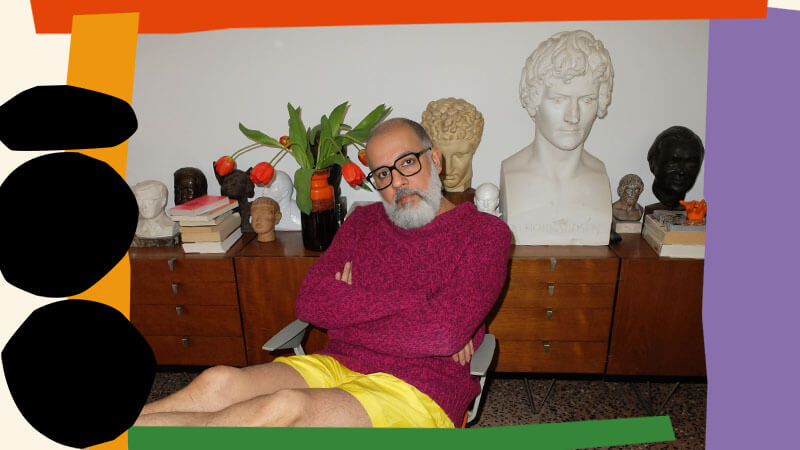The Fashion Entrepreneur Pioneering Sustainable, Cruelty-Free ‘Peace Silk’
In 2003, Chandra Prakash Jha – a fashion designer from Jharkhand, India – was at a crossroads. He had completed his education: a fashion design degree in Delhi in 1999, followed by a fashion management qualification in Milan. Should he see through his vision of introducing avant-garde fashion to India, or try to gain a deeper understanding of the industry? He settled on doing both.
“My knowledge was limited to design, which is a very small part of fashion,” he says. “I did not know anything about production. How are clothes actually made? That’s when I witnessed the harsh reality; the exploitation of the environment and human beings.” Citing polluted lakes and rivers in Delhi and Mumbai and overworked factory workers in mass fashion production, Jha wanted to take a different approach.
“In those days there was no book on sustainable fashion, it was learning by doing,” he says. He set out on a global mission, visiting organic cotton and silk farms across India, Africa and Peru to map out impacts on their surrounding environments, and how they differed from the chemical-heavy processes used in conventional agriculture.
One such visit was to a silk farm called Kuchai block in the Seraikela-Kharsawan district in Jharkhand, 60km from where he grew up. “The farmers were growing the raw material for silk and selling it to middlemen who had networks across Asia,” he says. “But it wasn’t flourishing. It was barely an industry.” The farmers, treated as the most disposable link in the supply chain, scraped a living. After conducting tests to check the farmland’s microbial biomass, Jha found that the soil was practically dead, devoid of microbes and laden with pesticides. He also discovered that conventional methods of silk production involve boiling the silkworms alive, which causes their cocoons to unravel so the silk threads can be harvested.
Determined to create cruelty-free silk that would also promote biodiversity, he undertook a decade of experimentation before finally settling on peace silk, or ‘ahimsa’ silk (ahimsa translates to ‘non-violence’ in Hindi). The method allows the silkworm to complete its life cycle in the cocoon, before the raw materials are collected to make silk. Plus, peace silk uses less water than traditional methods and no hard-metal chemicals. Jha also began growing flowers and vegetables on the farm, boosting pollination and helping other plants to flourish.

Finally, in 2012, his fashion label Cocccon was born and launched as part of Berlin Fashion Week’s sustainable arm Green Showroom. Since then, with the help of business partner Georg Andreas Suhr, Jha (who now works between Hagen in Germany and India) he has built a small yet successful brand. Cocccon’s collection ‘Abundant Paradise’ was shown as part of India’s top fashion and lifestyle event, FDCI x Lakmé Fashion Week in 2021. Garments featured geometric and asymmetric silhouettes with exaggerated sleeves, along with details made from textile waste. Cocccon now operates several peace silk farms across India, offering employment for local communities – Jha’s focus on sustainable, ethical production is evident from field to hanger.
For him, Cocccon is about far more than fashion. “When someone attends my show, my hope is that they don’t just enjoy the collection, clap and go home,” he says. “I hope they stop and think about the impact of their individual actions in battling climate change.”
Avani Thakkar is a freelance fashion and culture writer. Her work has appeared in publications including Vogue, ELLE, Dazed, i-D and Nylon




